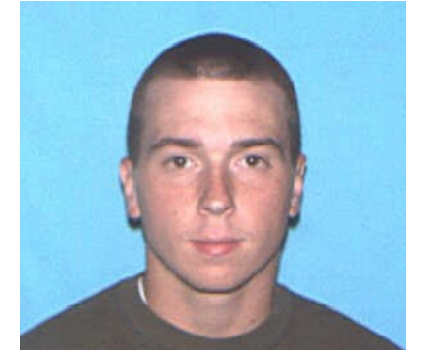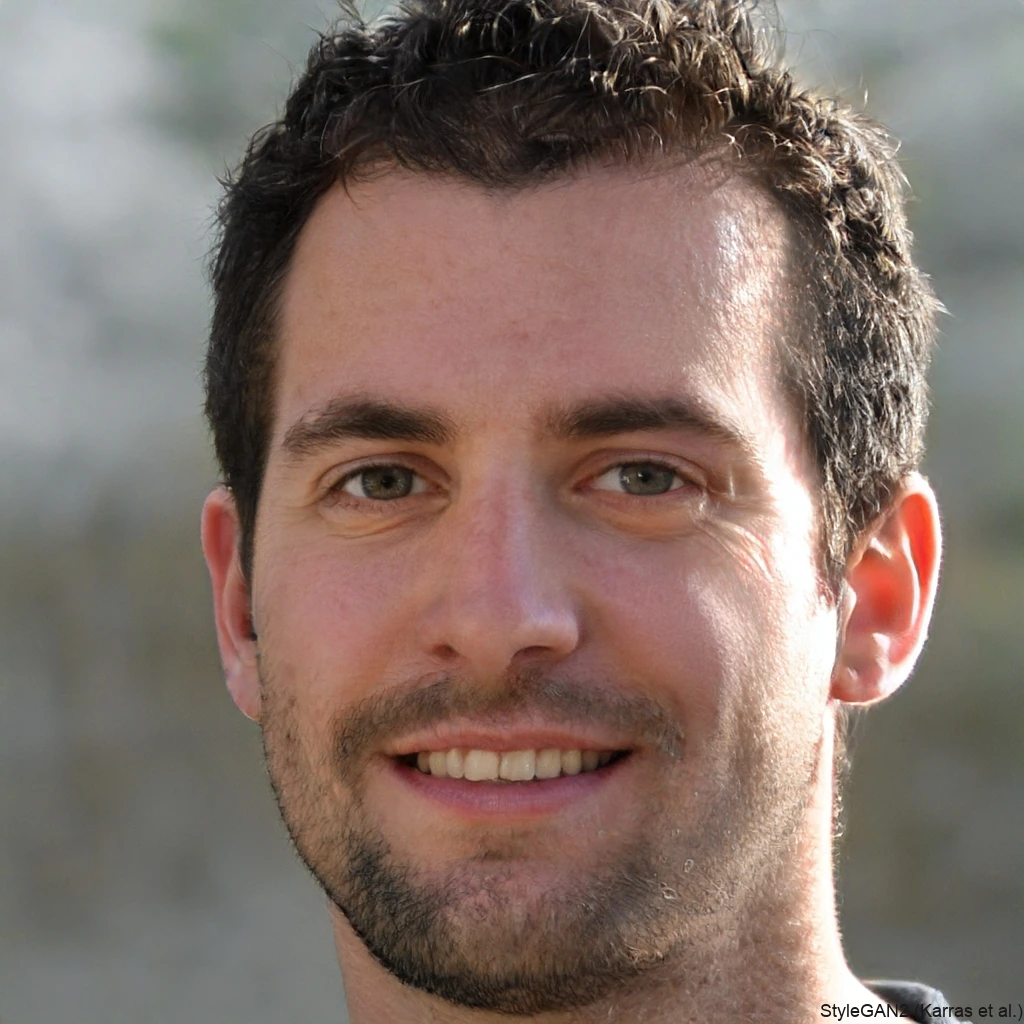
The Vanishing of Charlie Allen
A Life of Promise and Potential
Born on April 26, 1985, in Haverhill, Massachusetts, Charlie Allen seemed destined for success. After graduating from Haverhill High School in 2003, he enrolled at the University of Massachusetts at Dartmouth with ambitious plans to major in Psychology and eventually attend medical school. Those who knew Charlie described him as intelligent and driven, with a clear vision for his future in the medical field.
But Charlie had another claim to fame that set him apart from his peers. In the world of competitive gaming, he was known as "Neo Babson Maximus" – a handle that would later take on much greater significance. Under this pseudonym, Charlie had achieved something remarkable: he was ranked as one of the best Half-Life players in the world. This wasn't just casual gaming; Charlie had reached the pinnacle of competitive play in one of the most challenging first-person shooter games of its era.
The gaming achievement showcased Charlie's strategic mind and dedication. Half-Life, with its complex physics puzzles and intense combat scenarios, required not just quick reflexes but also problem-solving skills and the ability to think several steps ahead. Charlie's success in this arena demonstrated the same intellectual capacity that made him a promising pre-med student.
The Shadow of Mental Illness
Despite his outward success, Charlie was fighting a private battle. He had been diagnosed with Bipolar Disorder, a condition that causes dramatic shifts between manic highs and depressive lows. Initially, his family reported that Charlie was managing his condition well with a combination of medication and therapy. The treatment appeared to be working, keeping his mood swings under control and allowing him to function normally in his academic and social life.
However, like many people with bipolar disorder, Charlie struggled with the side effects of his medication. The drugs that stabilized his mood also made him feel unlike himself – a common complaint among those treating mental health conditions. The medications can dull emotions, reduce creativity, and create a sense of being disconnected from one's true self.
By the summer of 2007, Charlie had made a decision that would prove fateful: he stopped taking his medication altogether. This choice, while understandable from his perspective, set the stage for the dramatic events that would unfold in the fall.
An Obsession Takes Hold
Once off his medication, Charlie's behavior began to change in ways that concerned those around him. What started as a healthy interest in tennis gradually morphed into something much more consuming. Friends and family watched as Charlie became increasingly obsessed with the sport, spending virtually every waking moment either practicing tennis or watching professional matches on television.
This wasn't just enthusiasm – it was an all-consuming fixation that began to dominate every aspect of his life. The intensity of his focus was characteristic of the manic episodes associated with bipolar disorder, where individuals can become hyperfocused on particular activities or ideas to an unhealthy degree.
The obsession reached its peak in September 2007, when Charlie made a decision that shocked everyone who knew him: he legally changed his name to Neo Babson Maximus. The same handle he'd used for gaming was now his legal identity. According to Charlie, this change was strategic – he believed that having a unique name would help him stand out among professional tennis players, just as it had in the gaming world.
To his family and friends, this name change was a clear sign that something was seriously wrong. The Charlie they knew was a grounded, academically focused young man with plans for medical school. This new obsession with tennis and the legal name change suggested he was experiencing a significant manic episode.
The Day Everything Changed
October 11, 2007, started like many others for Charlie. He met with his friend Mason Viau for tennis practice, and Mason later reported that nothing seemed unusual about Charlie's behavior during their session. They made plans for that evening – Charlie had invited Mason to join him at a party with some members of the women's tennis team. After sharing dinner together, they agreed to meet up again at 8:30 PM.
Charlie also had other plans that evening. His sister was expecting him to join her in Providence for a night out at a local bar. It was during their conversation about these plans that the first signs of serious trouble emerged.
Charlie's sister noticed that his Facebook account had been deleted, which struck her as odd. When she called to ask him about it, Charlie's response was deeply disturbing. He sounded "scared and panicked," insisting that he hadn't deleted the account himself – someone else must have done it. More alarmingly, he told his sister that "important people" were after him and that she was in danger.
When she tried to get more information about what he meant, Charlie's response was cryptic and concerning: "I can't talk right now, but all the answers are in the periodic table of elements." This statement, with its apparent reference to some hidden code or meaning in the periodic table, suggested that Charlie was experiencing paranoid delusions – a serious symptom that can accompany severe manic episodes.
The Final Messages
What happened next painted a picture of someone in the grip of a serious mental health crisis. Charlie left voicemail messages for both of his parents, but the content of these messages was contradictory and alarming. He told his father he was planning to go to Florida and Mexico, while telling his mother he was headed to Texas. Both parents later agreed that he sounded as if he was running from something – his voice conveyed urgency and fear.
Meanwhile, Mason waited for Charlie to show up to the party they had planned, but Charlie never arrived. When Mason tried to call him, he discovered that Charlie's phone had been turned off. This was completely out of character for Charlie, who typically maintained regular contact with his friends and family.
The Break-In and Disappearance
The next confirmed sighting of Charlie came in the early morning hours of October 13, 2007. The incident at the Dartmouth home, where he broke into a woman's second-story bedroom looking for his friend Mason, demonstrated just how disconnected from reality he had become. The fact that he apologized and jumped out the window when confronted suggests he retained some awareness that his behavior was inappropriate, but his mental state was clearly severely compromised.
This break-in marked the beginning of what would become an extensive search effort, as it became clear that Charlie was missing and potentially in serious danger.
The Trail of Evidence
Over the following days, investigators began to piece together a trail of evidence that painted a picture of someone experiencing a complete mental breakdown. On October 14th, police were called to a residence where someone had found a backpack containing school supplies in their yard off Slocum Road, right next to the UMass Dartmouth campus. The notebooks were clearly labeled with Charlie Allen's name, suggesting he had been in the area recently.
Three days later, on October 17th, Charlie's sneakers were discovered in a wooded area. This find was particularly concerning because it suggested Charlie might be wandering around without proper footwear, making him even more vulnerable to the elements and potential injury.
The discovery of Charlie's abandoned 1999 Ford Expedition on the UMass Dartmouth campus provided additional clues. The vehicle appeared to have been used as temporary shelter – it looked as though Charlie had been sleeping in his car, possibly for multiple nights. This suggested he had been living rough in the days leading up to his disappearance.
The Search Efforts
Once Charlie was officially reported missing, law enforcement launched an extensive search operation. The effort included bloodhound units, aerial searches, and ground teams that scoured local natural areas where Charlie might be injured or deceased. Searchers also checked homeless camps, hotels, and other locations where transient individuals might seek shelter.
The search was complicated by the numerous reported sightings that came in from the public. Dozens of people called in claiming to have seen Charlie, with reports coming from across New England and beyond. One particularly intriguing sighting involved multiple witnesses who claimed to have seen Charlie on the night he disappeared, shirtless and talking to a truck driver. This led investigators to theorize that Charlie might have hitchhiked out of the area.
"They looked into what trucks may have been in the area at the time, but there was nothing to really pursue," Charlie's father later explained. Despite their efforts, investigators were unable to verify any of the reported sightings or track down the mysterious truck driver.
The Evidence That Never Surfaced
One of the most puzzling aspects of Charlie's disappearance is what hasn't been found. His keys, wallet, and cell phone have never been recovered, despite extensive searches of the areas where he was known to have been. Even more telling, there has been no activity on his credit cards or phone since his disappearance – no attempted purchases, no calls, no digital footprint whatsoever.
This complete absence of financial or communication activity suggests either that Charlie is deceased, that he deliberately chose to disappear and avoid all traceable activities, or that someone else is responsible for his disappearance. Each possibility raises its own set of troubling questions.
Theories and Speculation
Nearly seventeen years after Charlie's disappearance, his case remains officially open, though Dartmouth police haven't conducted active searches in recent years. The lack of resolution has led to various theories about what might have happened:
Mental Health Crisis: The most likely explanation is that Charlie, in the grip of a severe manic episode with paranoid delusions, wandered into the wilderness and succumbed to exposure or injury. The wooded areas around Dartmouth could easily conceal remains for years or even decades.
Intentional Disappearance: Some speculate that Charlie, feeling overwhelmed by his mental health struggles and perhaps embarrassed by his recent behavior, chose to disappear and start a new life elsewhere. His intelligence and gaming skills might have given him the knowledge needed to vanish completely.
Foul Play: While less likely given the circumstances, it's possible that Charlie encountered someone with ill intentions during his vulnerable state. His paranoid statements about "important people" being after him could have been delusions, or they might have reflected a real threat.
Accident: Charlie might have suffered an accident while in his confused state, falling into water, getting trapped somewhere, or sustaining injuries that proved fatal in a location where his body couldn't be easily found.
A Family's Enduring Pain
For Charlie's family, the lack of answers has been devastating. His parents and sister have lived with uncertainty for nearly two decades, never knowing whether to hope for his return or grieve his loss. The promising young man who planned to become a doctor, who achieved world-class status as a gamer, and who was beloved by his friends and family simply vanished without a trace.
The case highlights the tragic intersection of mental illness and missing persons cases. Charlie's story demonstrates how quickly bipolar disorder can escalate when treatment is discontinued, and how the delusions and paranoia associated with manic episodes can put individuals in grave danger.
Sources
https://open.spotify.com/episode/0Elu2bQTkTvN3HMuZ8gQQo?si=S2qDp3KmRAuzTeW3zoRMLw
